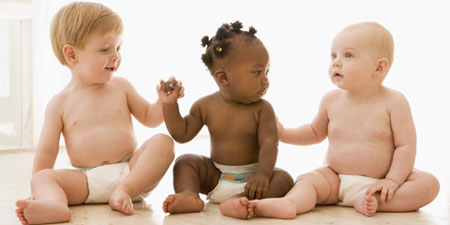Last week, at the launch of the Washington Center for Equitable Growth, John Podesta, founder and chair of the Center for American Progress and former chief of staff to Bill Clinton, weighed in on the effect of growing inequality on the fabric of American life. From the bimah of the “I” Street synagogue, a cornerstone of the Capitol’s civic life for 200 years, he noted that the income distribution in the United States resembled that of El Salvador, and warned of the ill effects of current economic policy. “These trends aren’t abstractions,” he said.

Although the panels were riveting (), they felt esoteric, and abstract—30,000 feet above the fray. There was talk of supply and demand, pre-tax income, the erosion of the middle class, and opportunity gaps. When I left the synagogue, a homeless, disoriented African-American man tried to help me find a cab and asked for money, later joining his peers in a treeless square, amid the bustling traffic.
Earlier in November, Jonthan Kozol, who has ploughed the fields of inequality for decades in his searing works—including Death at An Early Age and Amazing Grace—had delivered a reality check, at a forum hosted by the Schuyler Center for Analysis and Advocacy in Albany, just a train ride away from New York City, where the incoming mayor, Bill de Blasio, has made universal prekindergarten a cornerstone of his agenda to combat inequality. Though recovering from cataract surgery, Kozol was in rare form—at turns witty and sentimental, remembering a stroll he took with Mr. Rogers on Brook Avenue, the thoroughfare of one of the city’s most impoverished, under-served communities. But his outrage was never far behind. Here are a couple of choice excerpts:
Every child in poverty deserves the same high level of early childhood education that affluent children have. I go into the kindergarten classrooms of the South Bronx. I’ll say to the teacher: How many of these little ones got a couple of years of good preschool before they came to your class…like the kind in which rich Manhattan parents enroll their children, called the “Baby Ivies.” There’s not even a pretense of a meritocracy. The game is rigged before they even begin.
Universal prekindergarten is a funny phrase; it’s Orwell language; it’s doublespeak. In fact, less than half of eligible four-year-olds receive a preschool opportunity, and this for a half-day…In view of what we know about the first years of life, the damage we’re doing isn’t just an act of ordinary thievery, it’s irreversible. A little girl of three will never have that year again. All the politicians in Washington or Albany can’t give it back.
This month marks the release of two reports that help bring us back down to earth. The National Institute for Early Education Research just released , which looks at African-American children’s access to high-quality preschool—or lack thereof. Authors Steven Barnett and Megan Carolan note that “The achievement gap between students of different social and economic backgrounds can be directly linked to opportunity gaps, including lower access to high-quality education.”
Restating the obvious—which can never be said enough—they call attention to the consequences for “African-American children, and others whose educational needs are poorly met in the first five years of life,” who “fall behind before they even start Kindergarten.” They also highlight alarming disparities in home-based care, with 30 percent of settings in which white children spend their days deemed low quality, compared to 53 percent and 63 percent, respectively, for black and Latino children. And even in Head Start, high-quality early education is more elusive for African-American students, with the odds of enrollment in such settings only about one in four, compared to one in two for white and Hispanic kids.
But the last word belongs to Felicia Dehaney, President and CEO of the National Black Child Development Institute, whose report gets beyond the cold data straight to the heart of the matter:
Our children will inherit this world together. And we don’t believe that some of those children—the Black ones—are wrong. We don’t think they are bad. We don’t think they are doomed to failure. We fully understand the crises. We work with our children. We talk to our parents. We read the statistics—the poverty rates, the test scores, the health outcomes—and we are broken hearted.
But we also know our strengths and our successes. We know the stories behind the statistics. We may not have all the answers, but we, collectively, have some of them. There are things that work—and there are things that don’t. You can’t call a father an “ineffective parent” and then wonder why he doesn’t show up to your parenting education event. You can’t tell a child she’s never going to amount to anything, and then wonder why she doesn’t. The words we use; the expectations we hold; the beliefs in our hearts—all of these things matter. Ensuring that we provide sufficient and equitably distributed resources? This matters too. Morally, yes, but also because research says these things matter in achieving better outcomes for our children.



Thank you for this poignant and accurate call to action. These well documented disparities impact our nation in predictable ways. The cradle to prison pipeline (@childrensdefensefund.org) can be changed to welcoming our babies with the supports and opportunities we know work ( and starting even before they arrive by addressing the capacity of their families to be !
… Utube clip worth watching: change the first five years you change everything , united way
We are thinking on the same frequency, Susan. I’m so thankful that you are out there doing this much-needed advocacy work. Your mention of Kozol brings it all back home to me, and seals the realization I’ve been having every day lately: the game is still rigged, and those of us who know this must make a change in this broken system.
We need equality badly. When will people realize that a chain is only as strong as the weakest link?